Posts Tagged ‘Improvement Era’
 Salt Lake LDS Softball Competition, 1935
Salt Lake LDS Softball Competition, 1935
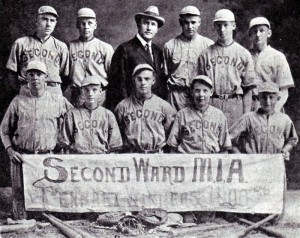 While the first All Church Softball Tournament was apparently held in 1938, competition among LDS wards started earlier than that. Wards, such as the Brigham City 2nd Ward pictured here, often had baseball teams (and softball teams later, as that sport developed) that played in stake and local leagues. But competitions involving LDS wards competing with other LDS wards took a while to develop. It wasn’t until after the Amateur Softball Associaltion standardized the rules for softball in 1933 that softball became widespread among LDS wards, and competition across stake boundaries became institutionalized.
While the first All Church Softball Tournament was apparently held in 1938, competition among LDS wards started earlier than that. Wards, such as the Brigham City 2nd Ward pictured here, often had baseball teams (and softball teams later, as that sport developed) that played in stake and local leagues. But competitions involving LDS wards competing with other LDS wards took a while to develop. It wasn’t until after the Amateur Softball Associaltion standardized the rules for softball in 1933 that softball became widespread among LDS wards, and competition across stake boundaries became institutionalized.
 Jackie Robinson in the Improvement Era
Jackie Robinson in the Improvement Era
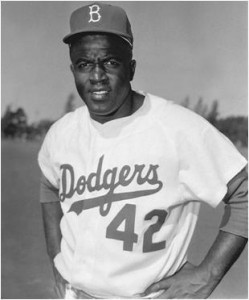 Politics is said to make strange bedfellows. While that is certainly true in a sense, I’m not sure what the following excerpt from the LDS Church’s Improvement Era of 1949 is exactly. Its not politics, but it certainly is somewhat strange. Often today our perception of Mormonism before 1978 is that African-Americans were ignored or dismissed because of the priesthood ban and the minuscule representation of African-Americans in Utah.
Politics is said to make strange bedfellows. While that is certainly true in a sense, I’m not sure what the following excerpt from the LDS Church’s Improvement Era of 1949 is exactly. Its not politics, but it certainly is somewhat strange. Often today our perception of Mormonism before 1978 is that African-Americans were ignored or dismissed because of the priesthood ban and the minuscule representation of African-Americans in Utah.
However, when the Improvement Era wanted to make a point, they apparently weren’t above using Jackie Robinson’s fame to help. And in this case, Robinson had said what the LDS Church wanted to hear.
 A Baseball Team in Every Ward
A Baseball Team in Every Ward
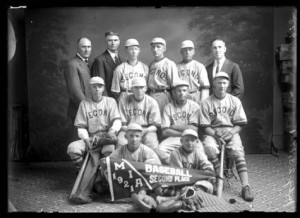 In the late 16th century Henry IV of France expressed a desire that everyone in his realm would “have a chicken in his pot every Sunday.” That idea showed up again in Herbert Hoover’s promise of a “chicken in every pot”—the politician’s promise of prosperity.
In the late 16th century Henry IV of France expressed a desire that everyone in his realm would “have a chicken in his pot every Sunday.” That idea showed up again in Herbert Hoover’s promise of a “chicken in every pot”—the politician’s promise of prosperity.
I’m not sure whether “a baseball team in every ward” is a promise of prosperity or programming gone awry, but that is essentially what leaders of the MIA suggested in 1922—some years before Hoover made his ill-fated promise. They wrote: “Each ward should have an organized baseball club, and each stake should have an organized baseball league…”
 Walter “Big Train” Johnson in the Improvement Era
Walter “Big Train” Johnson in the Improvement Era
 If Mariano Rivera wrote an article for the Ensign, would you be surprised? Would you read the article?
If Mariano Rivera wrote an article for the Ensign, would you be surprised? Would you read the article?
The idea seems crazy—the Ensign doesn’t publish articles like that, does it? I suppose not. But its predecessor, the Improvement Era, published from 1897 to 1970, did publish articles by non-Mormons occasionally, and those articles even included some without a religious message.
And for baseball fans, he best of these articles might be the following article by Walter “Big Train” Johnson, published just two years before he was inducted into the inaugural class of the National Baseball Hall of Fame.
 Did Heber J. Grant suggest Sunday Baseball?
Did Heber J. Grant suggest Sunday Baseball?
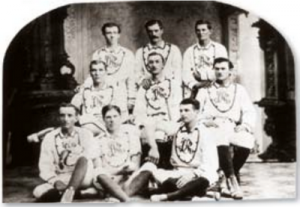 Mormon sports fans are likely tired of the all to frequent arguments over who should play baseball on Sunday and under what circumstances. Anyone who is an active member of the Church and who pays attention to lessons on how to keep the sabbath day already knows all the arguments. This post isn’t about those arguments. Instead, it is about history: specifically rumors about Sunday baseball and members’ reactions to that rumor.
Mormon sports fans are likely tired of the all to frequent arguments over who should play baseball on Sunday and under what circumstances. Anyone who is an active member of the Church and who pays attention to lessons on how to keep the sabbath day already knows all the arguments. This post isn’t about those arguments. Instead, it is about history: specifically rumors about Sunday baseball and members’ reactions to that rumor.
Apparently, in 1913 at least, there was just such a rumor going around, claiming that Heber J. Grant, then an apostle, had told a group of church members that they could play baseball on Sunday.
 Spalding? No, Browning!
Spalding? No, Browning!
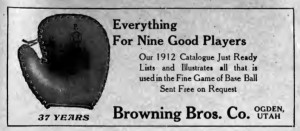 Most of us today, when we think of the baseball equipment of years ago (and even today), think of Spalding, the manufacturer founded by Albert Spalding Jr. in 1876. But he wasn’t the only manufacturer, and the Mormon population in Utah apparently had their own local company: Browning. Read the rest of this entry »
Most of us today, when we think of the baseball equipment of years ago (and even today), think of Spalding, the manufacturer founded by Albert Spalding Jr. in 1876. But he wasn’t the only manufacturer, and the Mormon population in Utah apparently had their own local company: Browning. Read the rest of this entry »